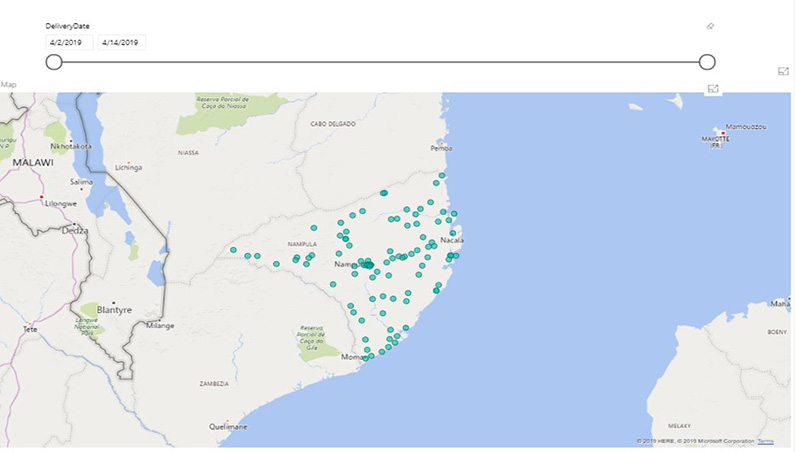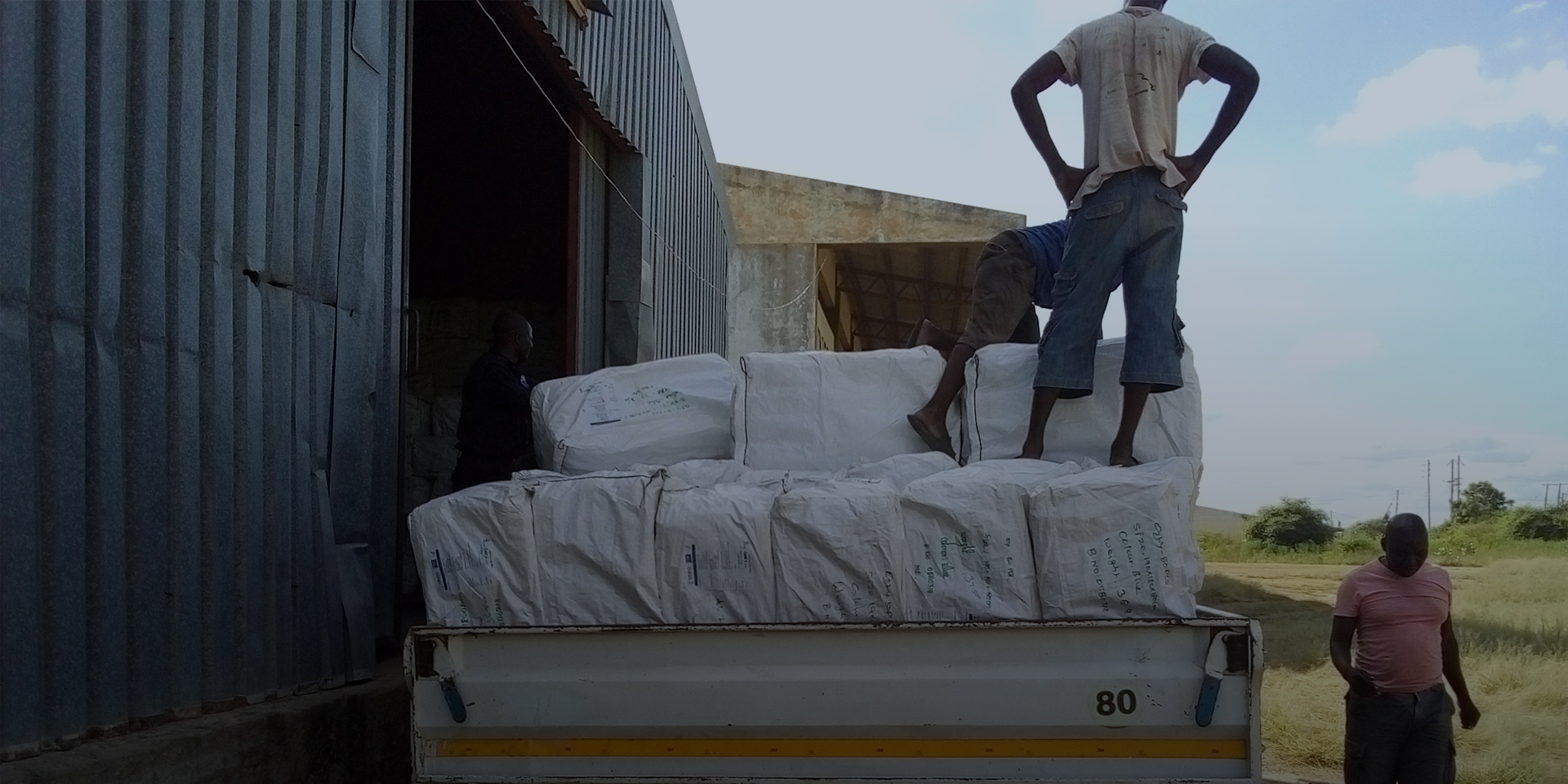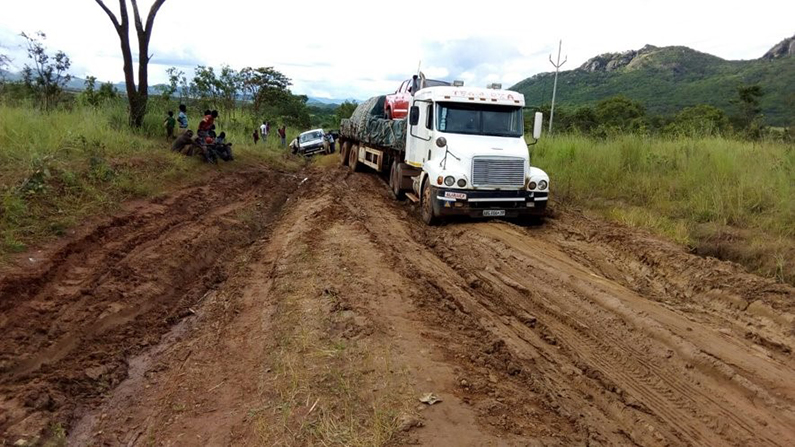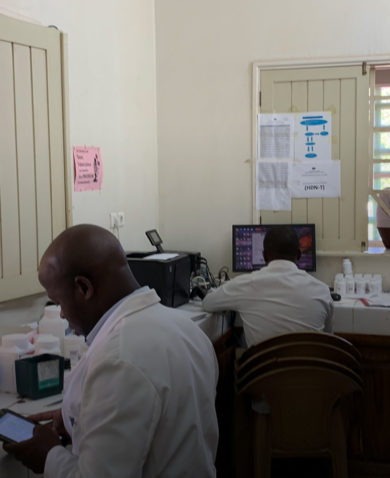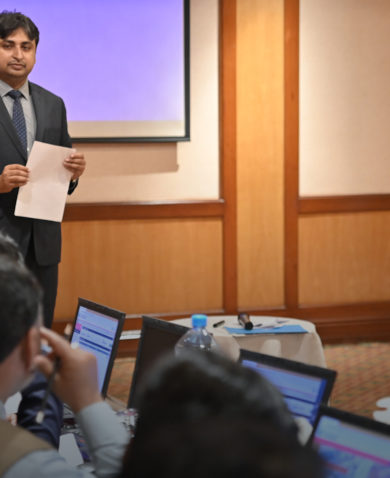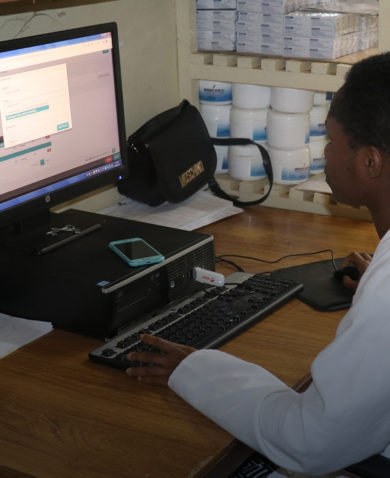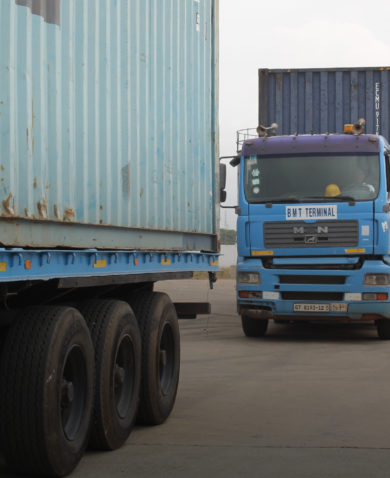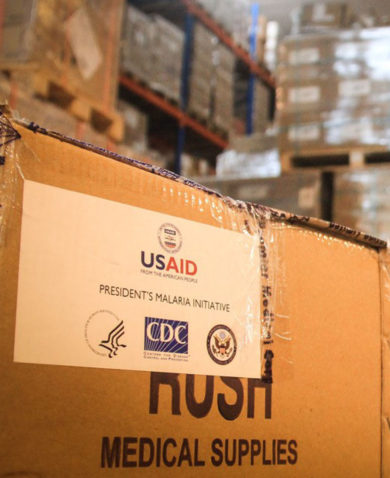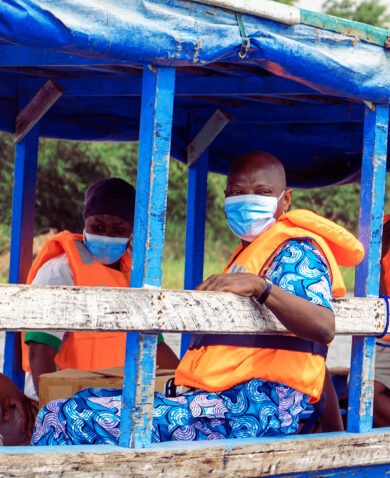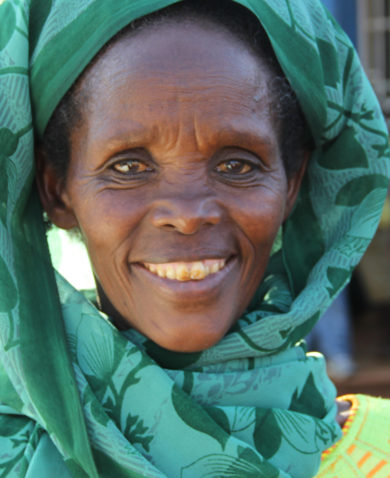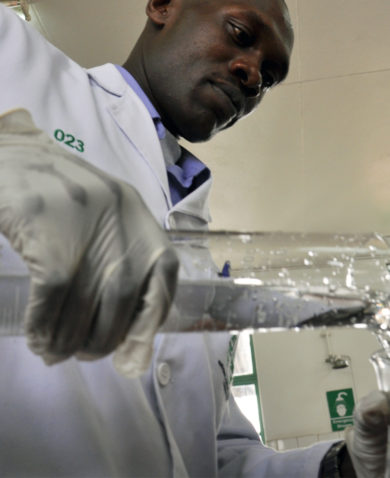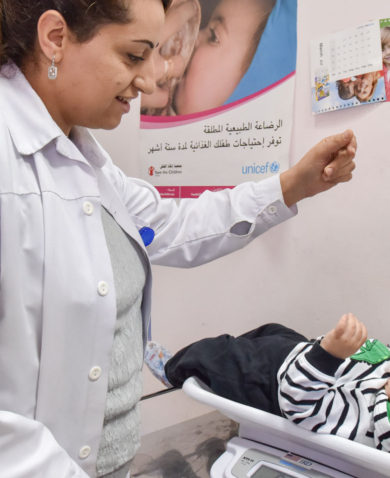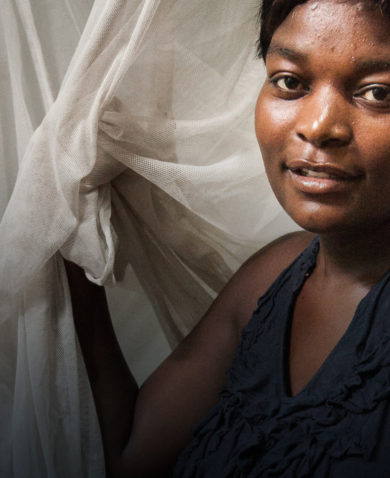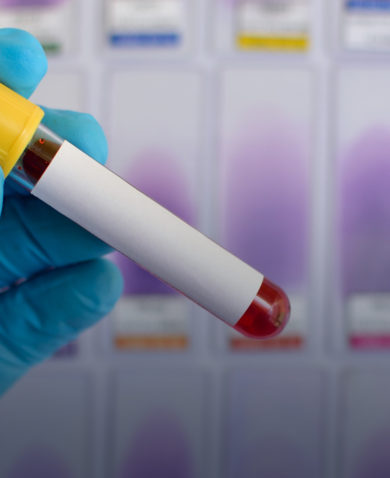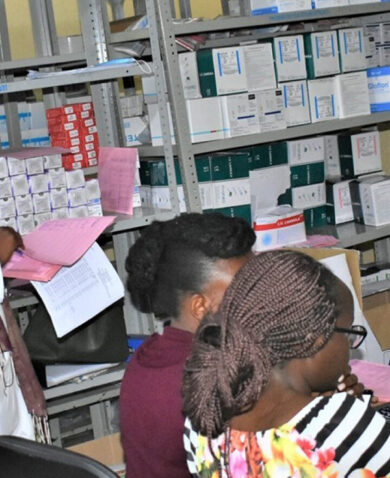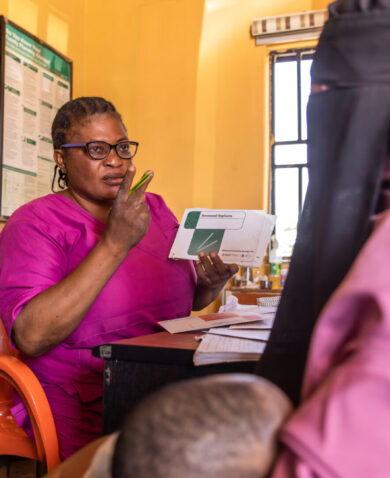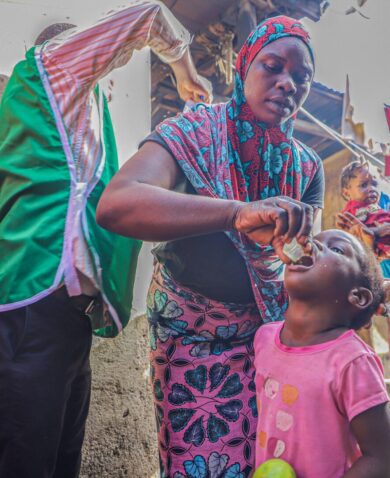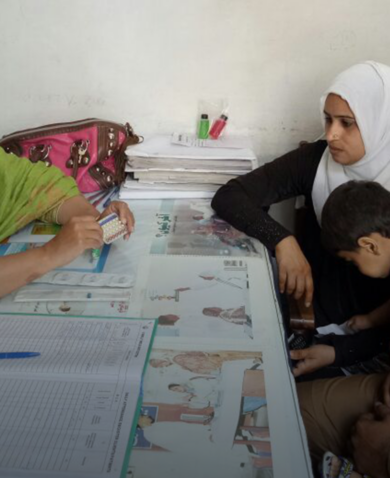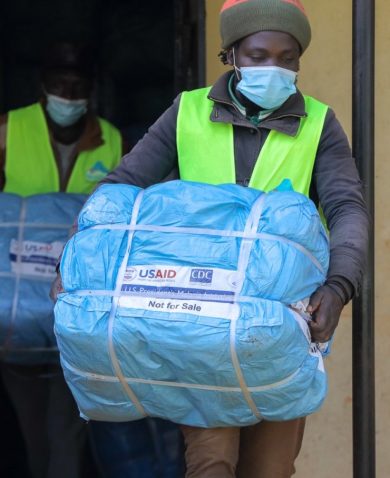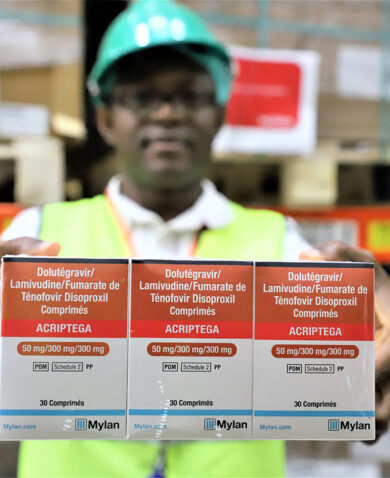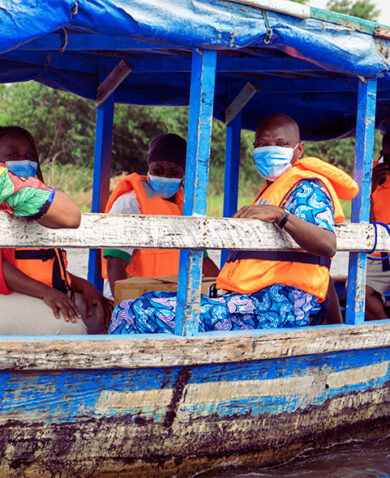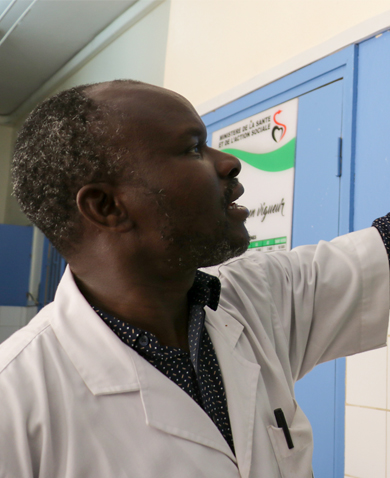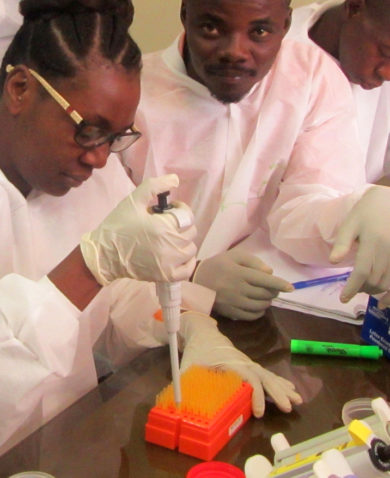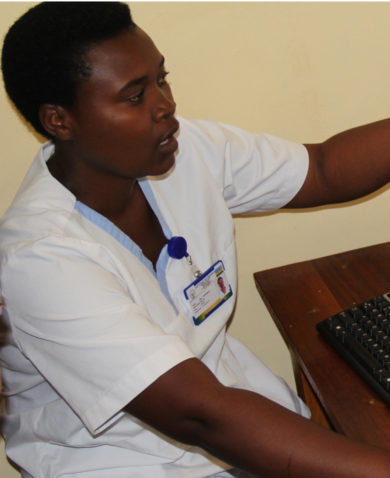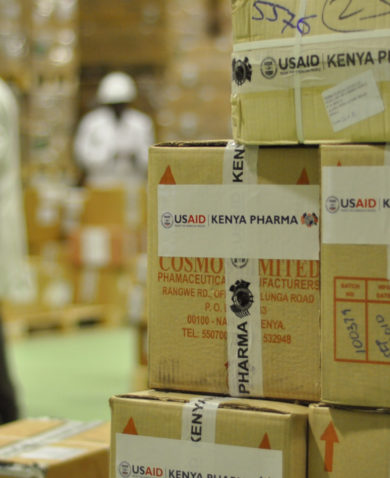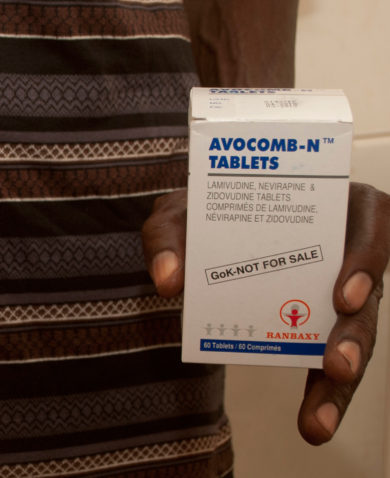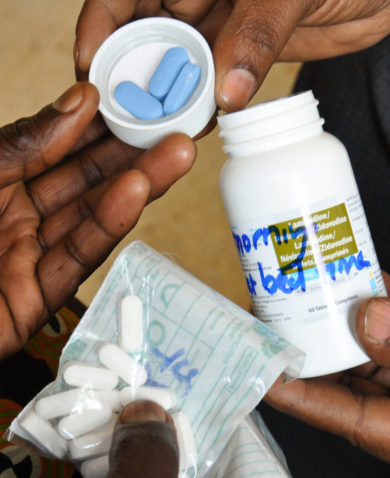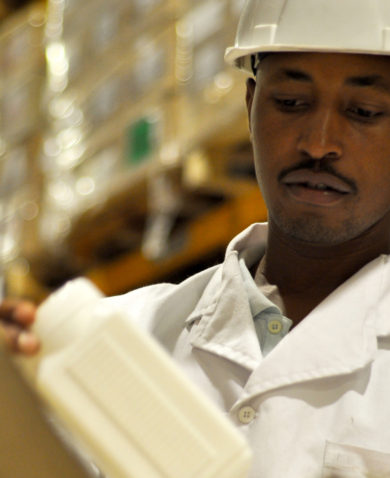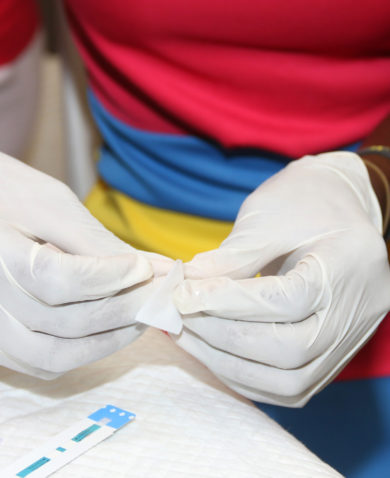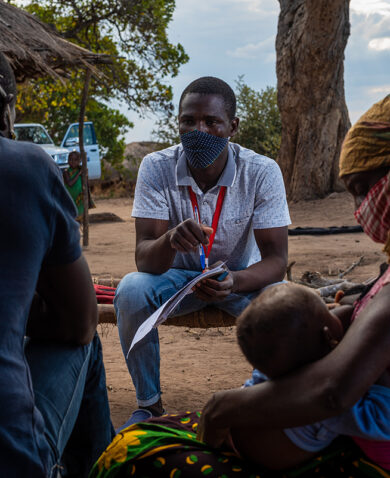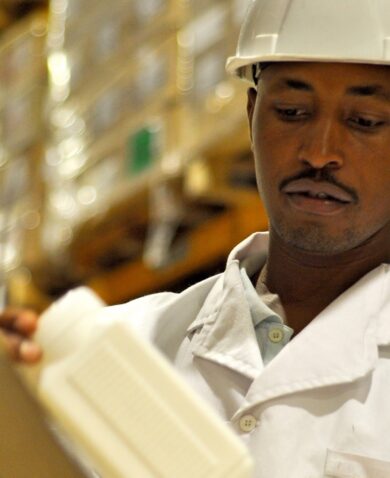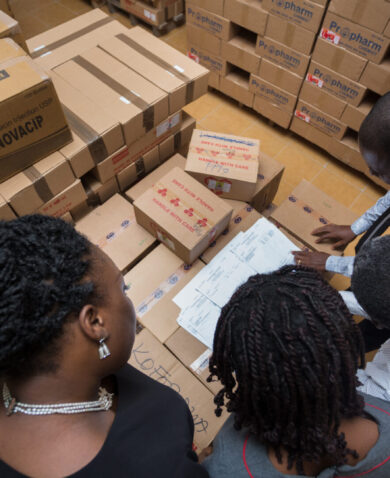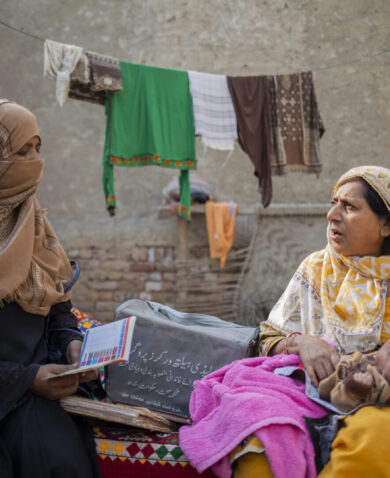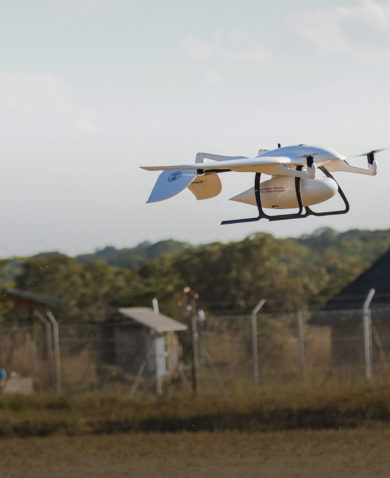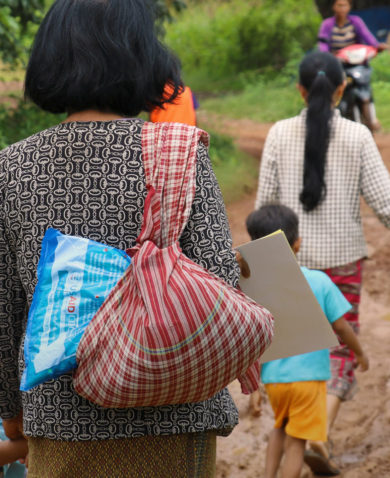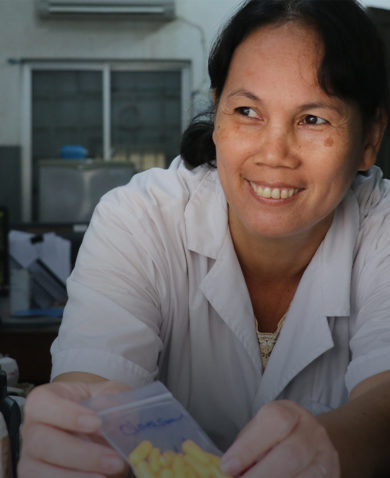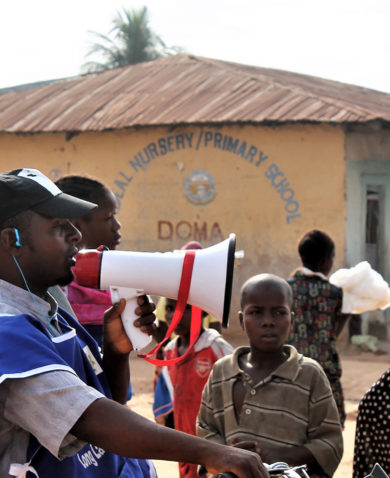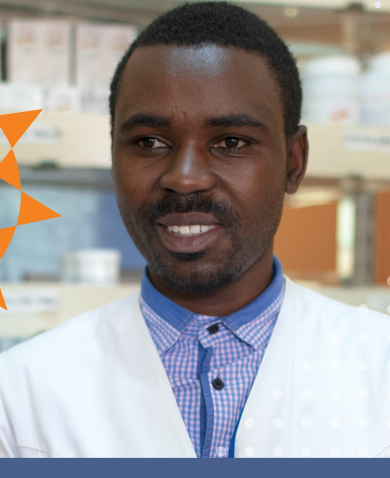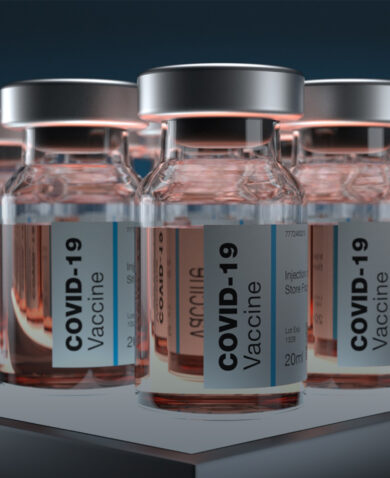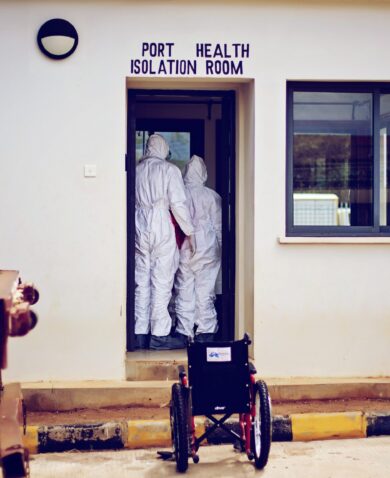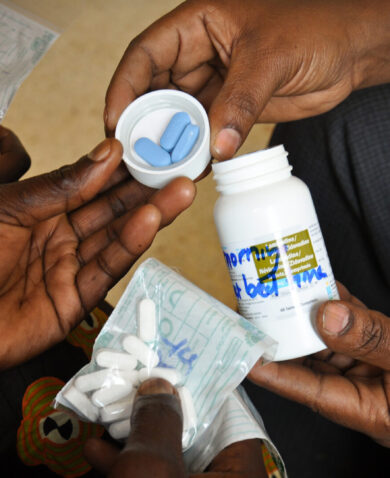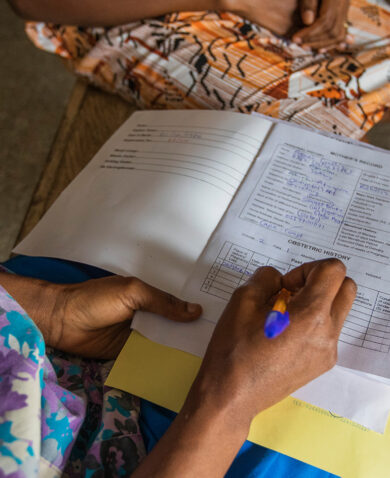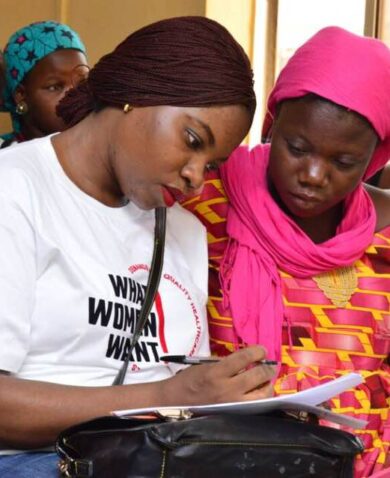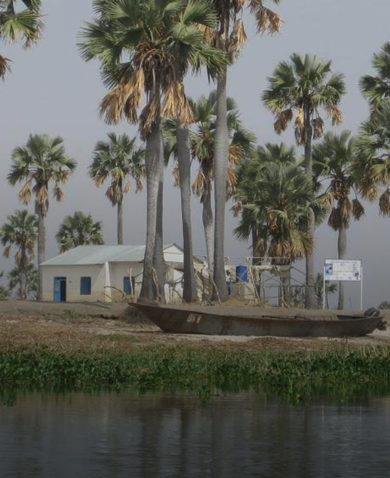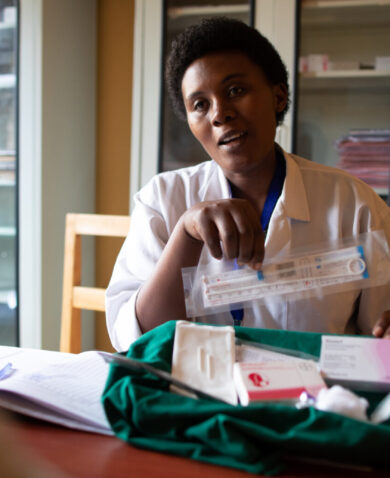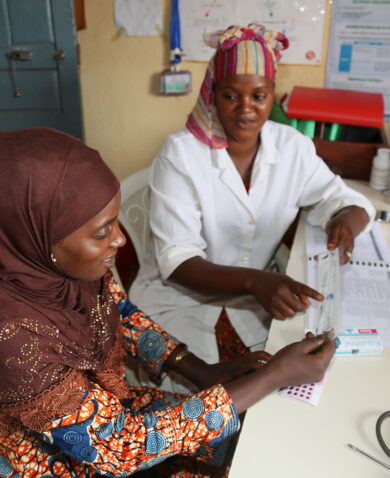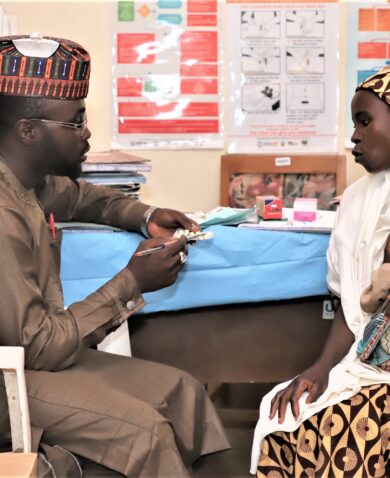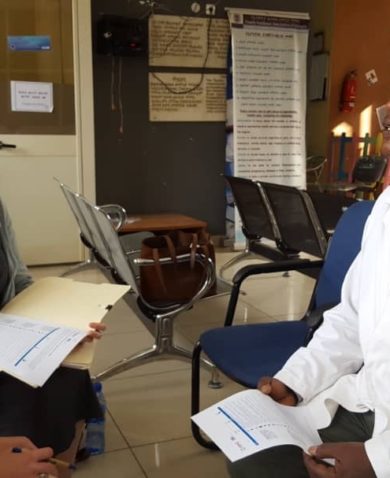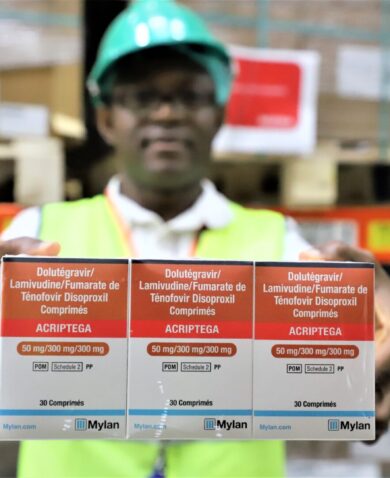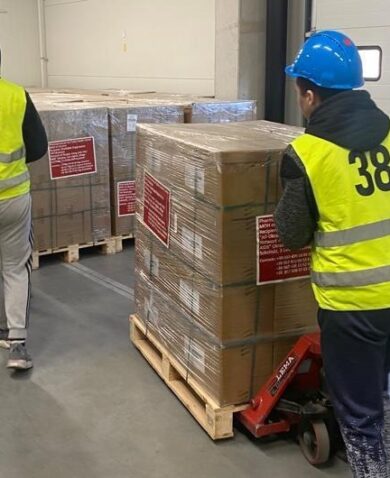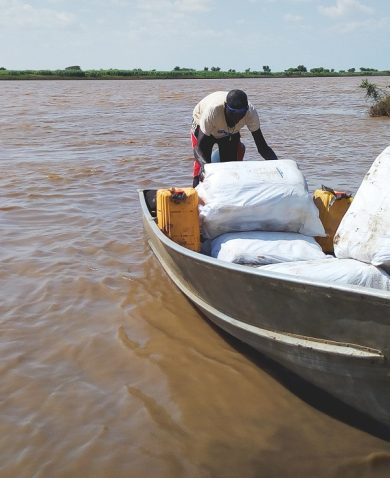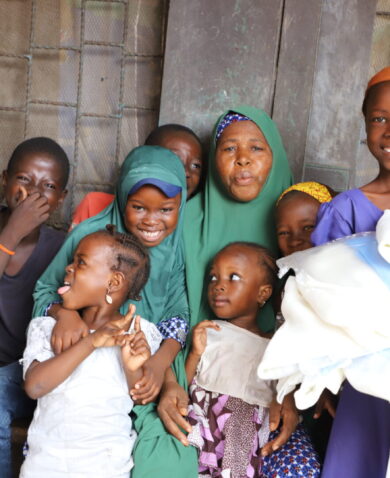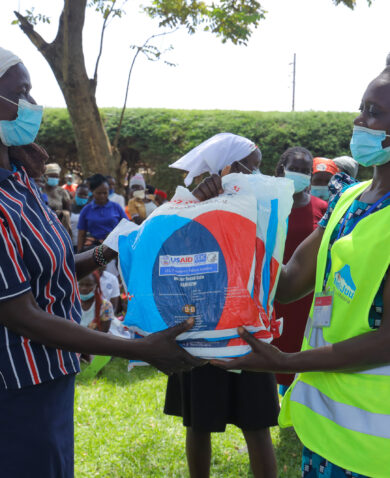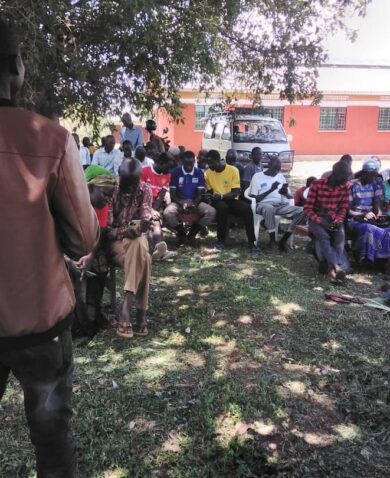Supporting Country Resiliency Through Partnerships and Technology
When designing the tool, Chemonics and ASU recognized that sustainability was key. TransIT needed to be appropriate for low- and middle-income countries, many of which have limited resources. The tool was designed to be simple, easy-to-use, and low cost so that it could be transferred easily to local government and private sector stakeholders, such as third-party logistics companies. In Angola, the GHSC-PSM project coordinated with the Ministry of Health to train staff in the Central Procurement Agency for Medicines and Medical Supplies (CECOMA), and localized TransIT into Portuguese.
“Once populated with the correct information, TransIT has the ability to compile the required reports with just a click of a button, thus empowering CECOMA,” said Bawinile Moyo, GHSC-PSM’s distribution and tracking expert in Angola.
Aligning with USAID’s strategy to focus on private sector engagement in the journey to self-reliance, the GHSC-PSM team identified five Mozambican transportation companies to distribute LLINs using TransIT, anticipating economic growth in the areas of logistics management, warehousing, and transportation over the years that will support the tool’s expansion and increase the visibility of deliveries and the quality provided to the customer.
In Angola, Cameroon, and Mozambique, where TransIT is already in use, improvements in the supply chain are evident. In-country distribution network visibility has improved, costs have been reduced, inefficiencies in invoices have been eliminated, and logistics planning are better informed. The GHSC-PSM project will introduce TransIT in eSwatini and Zambia in the next year and plans to expand to other countries in the coming years.
TransIT is helping to address deficiencies in commodity traceability while facilitating the delivery of essential health commodities that are vital for millions of people at risk of preventable and treatable diseases like malaria. These improvements ensure the equitable distribution of existing resources, introducing cost efficiencies that make it possible to purchase additional health commodities that protect millions from deadly diseases like HIV/AIDS and malaria.
“The availability of LLINs helped to improve the percentage of coverage of antenatal care consultation, reducing malaria cases during pregnancy as well as the target indicators defined by the provincial health sector,” said the director of warehousing and transportation for the GHSC-PSM project in Mozambique.
TransIT helps bridge the urban-rural divide, increasing the probability that a pregnant Mozambican smallholder farmer ― faced with the prospect of a five-mile walk to a health clinic for antenatal care through rain, dust, and crocodile-invested rivers ― will make the walk back having received the supplies and care she needs to protect her family.
